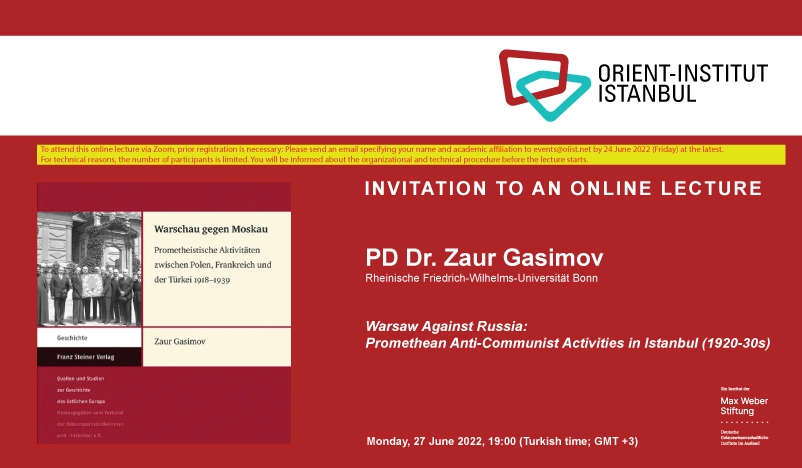
- Diese Veranstaltung hat bereits stattgefunden.
Warsaw Against Russia: Promethean Anti-Communist Activities in Istanbul (1920-30s)
Juni 27, 2022@7:00 pm–9:00 pm

Polish Republic was founded in 1918 and was able to defend its independence against Bolsheviks in the following years. The Peace Treaty of Riga (1921) was, however, rather a cease-fire and the Soviet Union conducted multilevel pressure on Poland trying to import revolution and to back ethnic separatism. Warsaw’s answer was the strategy of Prometheanism, covert financial and moral support for non-Russian exile elites of the former Tsardom scattered in Paris, Contanta, Istanbul and other cities. Numerous representatives of Crimean and Kazan Tatars, North Caucasians, Azeris, Turkestanis and Ukrainians found refuge in the early 1920s in Istanbul.
Poland supported and (co-)financed several edition and publication projects of those political emigrants and heavily contributed to the emergence of Turkish anti-Communist thought.
PD Dr. Zaur Gasimov read International Relations in Baku, Berlin and Eichstätt. Between 2002 and 2003, he worked as a press officer and translator at the German Embassy in Baku. After six years at the Orient Institute in Istanbul, he became Principal Investigator of DFG at the East European History Department at the University of Bonn (Germany) in 2020. His fields of interest are the cultural history of the Caucasus, the entanglements between Eastern Europe and the Middle East in the 20th century, the Soviet and Russian foreign policy towards Turkey and Iran.